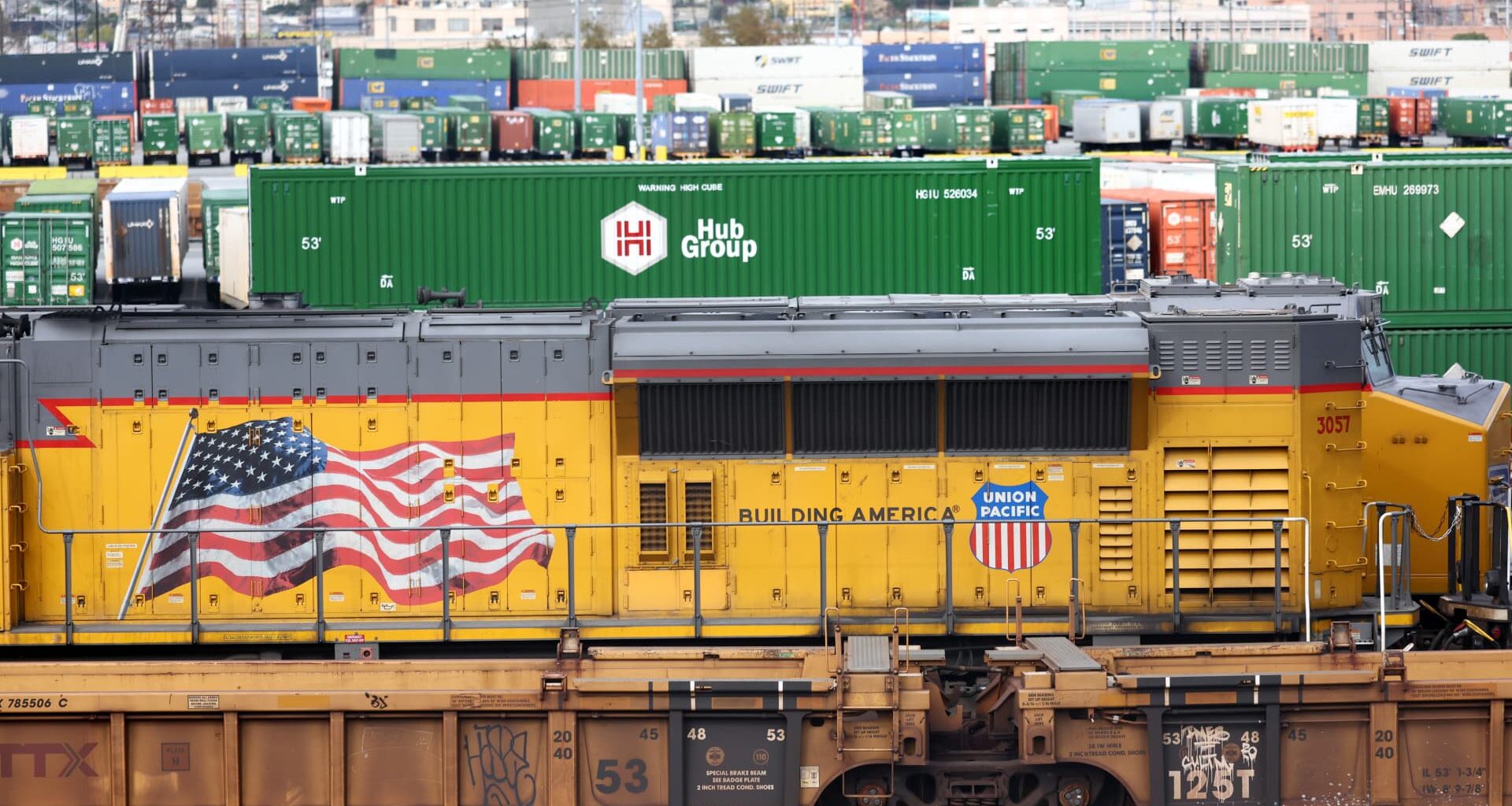A freight engine and shipping containers are viewed in a Union Pacific Intermodal Terminal rail yard on November 21, 2022 in Los Angeles, California.
Mario Tama | Getty Images News | Getty Images
Union Pacific said on Thursday it was in advanced discussions with rival Norfolk Southern for a possible mega merger that would create a transcontinental railroad behemoth.
Norfolk shares were up 3.5%, while Union Pacific fell 2.3% in premarket trading.
A deal, if it goes through, will combine Union Pacific’s dominant position in the Western two-thirds of the U.S. with Norfolk’s 19,500-mile route predominantly spanning 22 eastern states.
Norfolk has a market value of about $63.2 billion, while Union Pacific was valued at around $138 billion, according to LSEG data.
There can be no assurances as to whether an agreement for a transaction will be reached or as to its terms, Union Pacific said.
The North American railroad industry has struggled with volatile freight volumes, rising labor and fuel costs, and growing pressure from shippers over service reliability.
If the two companies agree to a deal, it would be largest-ever buyout in the sector.
It would also shape up as a key test of the Trump administration’s appetite for big-ticket mergers and faces a plethora of regulatory hurdles.
The first challenge would be securing approval from the Surface Transportation Board (STB), the federal agency that oversees railroads, currently led by Patrick Fuchs, a Trump appointee named to the post in January.
It would also require the support of worker unions and might invite scrutiny from several other federal bodies.
Major railroad unions have long pushed back against consolidation, warning that such deals threaten jobs and risk throwing rail service into disarray.
The last major consolidation in the industry was the $31 billion merger between Canadian Pacific and Kansas City Southern, which created the first and only single line rail network connecting Canada, the United States and Mexico.
The deal, which closed in 2023, faced intense regulatory pushback over concerns it would stifle competition, eliminate jobs and disrupt service but was eventually approved.
